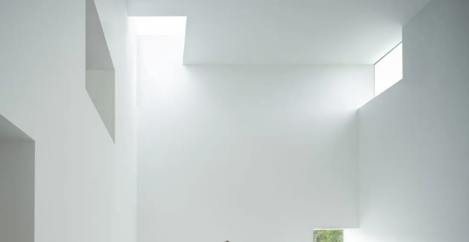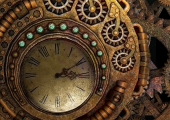May 17, 2024
Daylight Award ceremony announces two new laureates
 On the UNESCO International Day of Light, The Daylight Award announces the 2024 laureates: Spanish architect and professor, Alberto Campo Baeza for his architecture, and German professor of chronobiology Till Roenneberg, for his research. The two categories of The Daylight Award – scientific research and architectural design – recognise a duality with the aim of directing knowledge, based on research at the highest level, to the benefit of architectural thinking and practice. Research has created a scientific grounding for the use of daylight in architecture. – states the jury.
On the UNESCO International Day of Light, The Daylight Award announces the 2024 laureates: Spanish architect and professor, Alberto Campo Baeza for his architecture, and German professor of chronobiology Till Roenneberg, for his research. The two categories of The Daylight Award – scientific research and architectural design – recognise a duality with the aim of directing knowledge, based on research at the highest level, to the benefit of architectural thinking and practice. Research has created a scientific grounding for the use of daylight in architecture. – states the jury.
The Daylight Award for Daylight in Architecture: Alberto Campo Baeza, Spain: Campo Baeza’s architecture is celebrations of the silent miracles of daylight in buildings of widely differing functions. His buildings exemplify the spiritual qualities of daylight and thus expand the understanding of the values of daylight beyond the current scope of science. The architect’s unwavering confidence in his essential style often projects an air of silent spirituality, which is a rare, but a highly valuable alternative to today’s materialist, consumerist architecture. Main image: the Robert Olnick Pavilion.
The architecture category of the award assesses and celebrates the sensory, aesthetic, emotional, and mental qualities of daylight in architecture. The architectural projects of the 2024 laureate, Professor Alberto Campo Baeza from Spain are restrained and silent examples of sensuous, mental, and poetic qualities in the architectural articulation of daylight.
Campo Baeza’s works are celebrations of the silent miracles of daylight in buildings of widely differing functions. His buildings exemplify the spiritual qualities of daylight and thus expand the understanding of the values of daylight beyond the current scope of science.
In addition to his numerous, almost archetypically simple, and focused houses, he has designed buildings for a multitude of other purposes; museums such as Andalusia’s Museum of Memory and the recently completed Robert Olnick Pavilion of the Magazzino Museum in New York, the Caja Granada Savings Bank, a sports hall for Francisco de Vitoria University in Madrid, the Almerfa Cathedral Square and several office buildings – all which share the same intention of ennobling the architectural experience through abstraction and reduction.
The architect’s unwavering confidence in his essential style often projects an air of silent spirituality, which is a rare, but a highly valuable alternative to today’s materialist, consumerist architecture.
The Daylight Award for Daylight Research: Till Roenneberg, Germany: Till Roenneberg’s focus has been on chronobiology and issues like circadian rhythms and dependencies. His research and publications have helped to understand the many-sided qualities and impacts of daylight, and illumination in general, for human health, wellbeing, and performance. His fundamental research findings have been both highly cited and influential, and significantly, applied to multiple branches of society, spanning medicine, public policy, and architecture.
Till Roenneberg developed and validated the Munich ChronoType Questionnaire (MCTQ) to enable investigations of circadian entrainment in populations across the world. A key observation is the demonstration that human clocks are profoundly influenced by the natural light/dark cycle, despite increasing urbanisation.
Roenneberg has become notably influential as the creator of the “social jetlag” concept – a difference in sleep timing between work and free days which reflects changes individuals must make for work that are counter to their natural biology. When social jetlag is extensive, it indicates a biological challenge to that individual’s circadian and sleep systems. Roenneberg demonstrated links of social jetlag with obesity, depression, and substance abuse.














